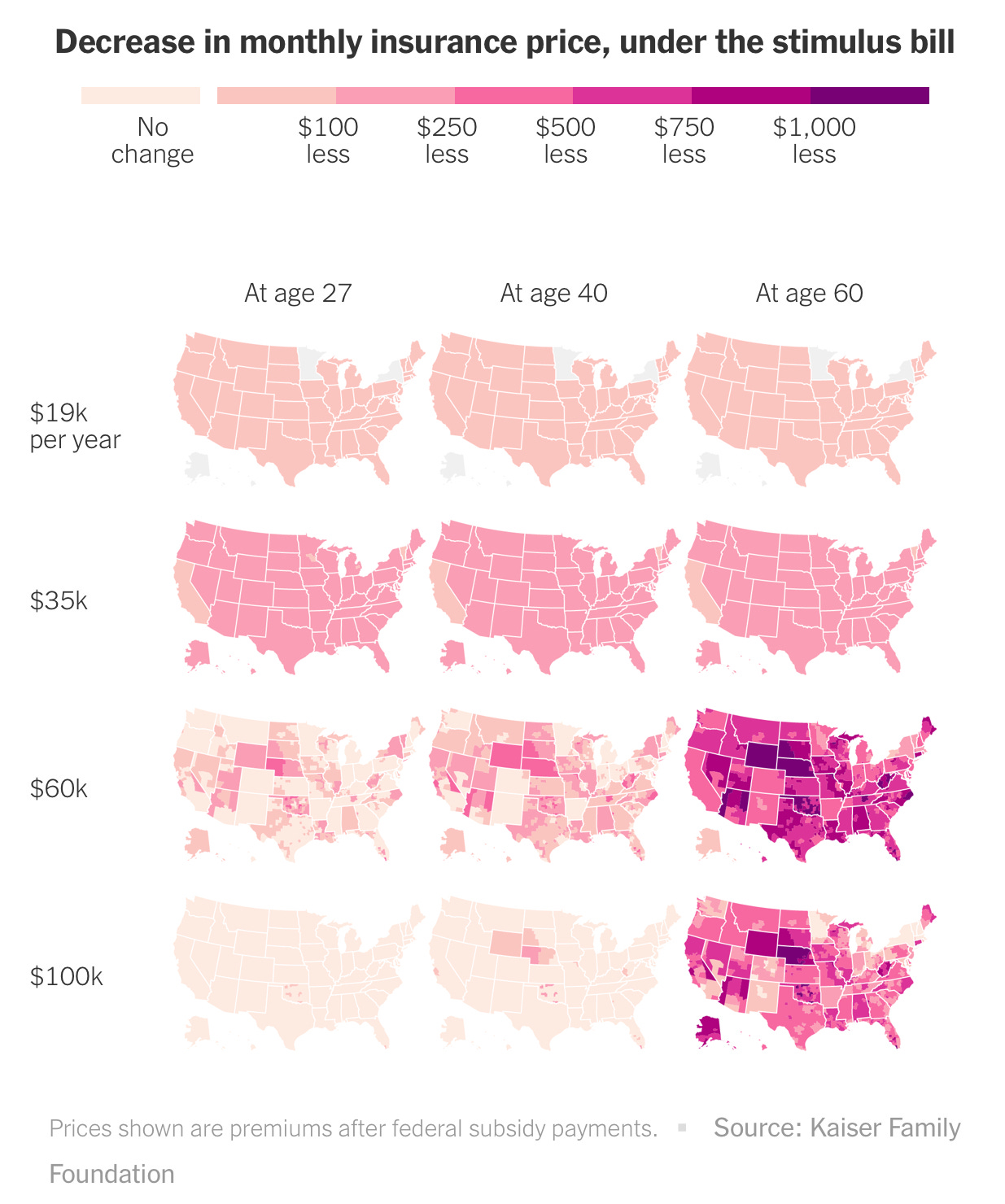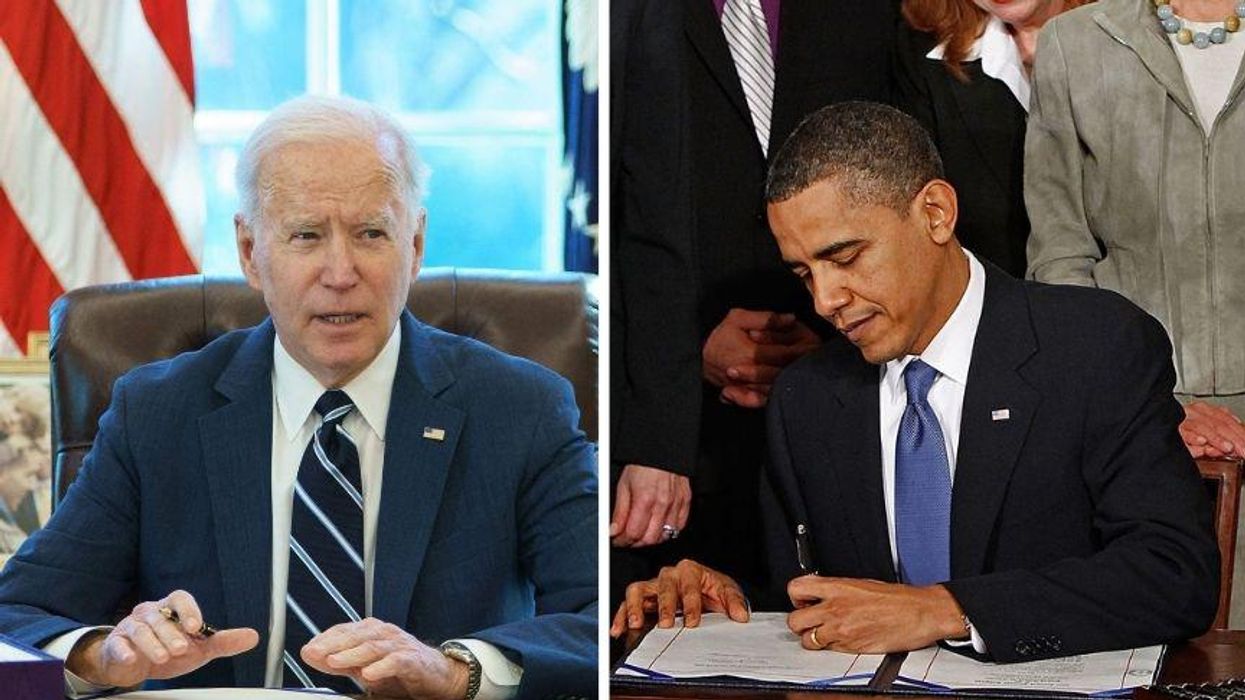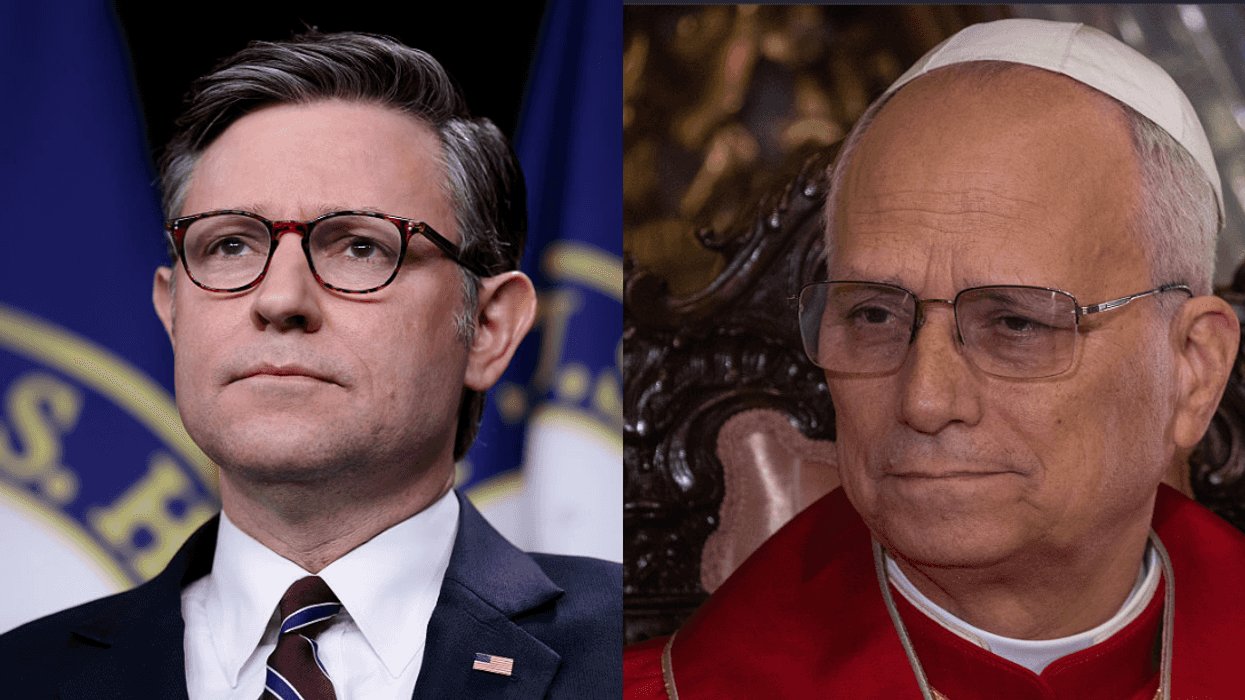Lost in the excitement over stimulus checks, unemployment benefits, and the battle for the minimum wage was a quietly inserted expansion of the Affordable Care Act, the benefits of which are about to be experienced by millions of Americans now that Joe Biden has signed the American Rescue Plan.
For a decade since its passage, the authors and defenders of the ACA have been waiting for an opportunity to strengthen it. This had been their plan all along, to tinker with the program and fix what wasn't working, but they were stymied by Republican control of Congress and then the White House. In the American Rescue Plan, the ACA authors saw their opportunity, and they took it.
For the next two years, nearly everyone who buys their own insurance is going to see a discount on ACA insurance rates, in some cases a very steep one. The bill provides generous subsidies for those in the lower income brackets as well as new assistance for those with incomes that used to be too high to qualify. Specifically, for those earning around $19,000, they will be able to sign up with zero monthly payments. For those earning over $51,000, premiums could fall by much as $1,000 a month in the priciest markets, especially for those in older age brackets.

In addition to tax credits on ACA health insurance purchases, the bill puts a cap on premiums for eligible Americans at no more than 8.5% of their income. The White House claims the provisions will reduce premiums for more than 10 million Americans and boost insurance enrollment nationwide.
Critics on the left point out that some groups such as undocumented immigrants still won't qualify for assistance. And thanks to twelve Republican governors who have refused to expand Medicaid, two million poorer Americans in those states will not reap the benefits of the Medicaid subsidies. But for most uninsured Americans, they will get a very good rate.
"What this law will do is make it so the majority of uninsured citizens are eligible for free or low-cost coverage," said Cynthia Cox, a Vice President at the Kaiser Family Foundation to the New York Times. "This won't bring us to universal health care, but it will bring us closer to universal eligibility for subsidized health insurance — for two years."
The subsidies in the bill are targeted toward Covid economic relief. For those currently receiving unemployment insurance, the premiums will look a lot like those for people earning around $19,000, which is nearly or totally free. The bill will also pay the full cost of premiums for six months under the federal COBRA program. This will come as very good news to the millions of Americans who lost employer-based health coverage during the pandemic and had to turn to the ACA.
"This is the first recession where the ACA is in place as a safety net for people who find themselves unemployed and without health insurance," said Larry Levitt, Executive VP for health policy at Kaiser, to ABC News. "These provisions go a long way towards putting plans within reach of people who have struggled to pay the premiums."
After years of the Trump administration's attempt to kill the ACA through legislation and court challenges, the expansion of the program comes as relief to its architects. "When you think about where we thought the ACA was headed four years ago, and contrast that to where we are right now, on the cusp of a massive expansion of affordability, it's pretty exciting," said Christian Linke Young, deputy director of the White House Domestic Policy Council for Health and Veterans Affairs, to the New York Times.
The bill has its strong critics in the GOP, who accuse Democrats of backdooring permanent fixes as part of a temporary stimulus plan. "Suffice it to say, this is not Covid relief," said Senator Bill Cassidy of Louisiana. Cassidy was the author of a prominent but unsuccessful bill to repeal the ACA in 2017. "It's fulfilling the agenda of the Biden administration under the guise of Covid relief."
Perhaps so. The White House knows its way around the ACA, with then Vice-President Biden having been a big champion of it ten years ago. To help fix the ACA in his own current administration, Biden recruited a host of former Obama aides: Many top jobs at the Centers for Medicare and Medicaid Services, the OMB, and HHS all went to staffers who worked on Obamacare. And in Congress, several key aides who drafted the health care subsidies in the American Rescue Plan also helped write the Affordable Care Act.
The White House also understands how to use healthcare as a political silver bullet, having learned the power of healthcare as a big vote motivator in the 2018 midterms. The subsidies in the Covid relief bill are temporary and are set to expire in two year, unless they are renewed. That puts the GOP on the defensive in 2022 should they vote to raise health care costs on millions, particularly older Americans.
Opponents like Senator Cassidy appear to understand this. He laments that short-term spending increases on the ACA will prove difficult to undo. Quoting former President Ronald Reagan: "Nothing lasts longer than a temporary government program." The White House certainly hopes that holds true.














 The Office No GIF
The Office No GIF  Excited Well Done GIF
Excited Well Done GIF 

 Mad Desk Flip GIF by Eminem
Mad Desk Flip GIF by Eminem  Drunk Head First GIF by Barstool Sports
Drunk Head First GIF by Barstool Sports  oscar isaac smoking GIF
oscar isaac smoking GIF  Napoleon GIF by Sony Pictures
Napoleon GIF by Sony Pictures 
